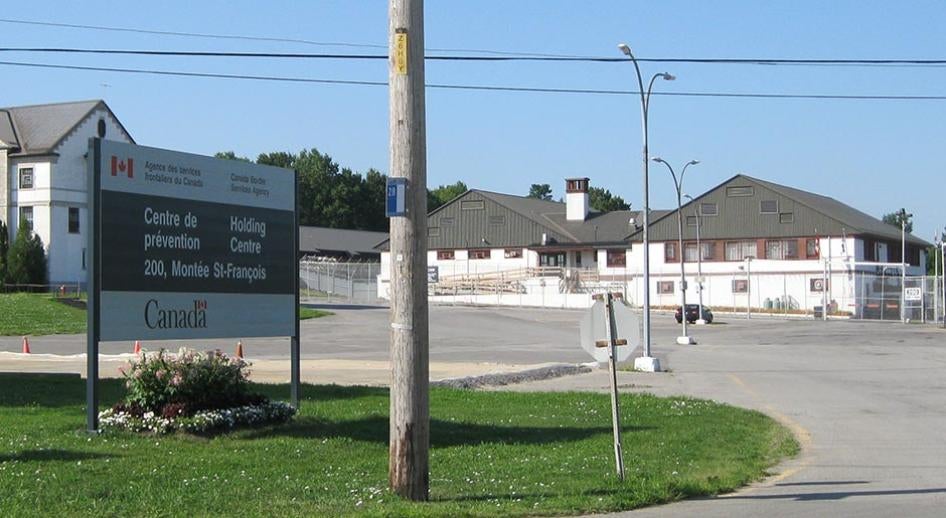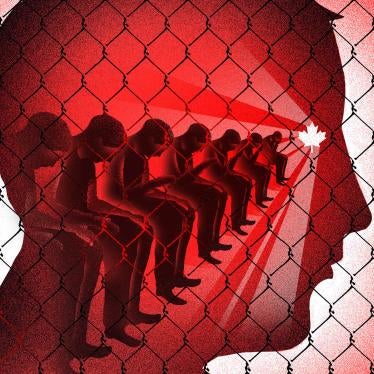On January 28, a person held in immigration detention in the Canadian province of Quebec died after they were found in “medical distress.”
The Canada Border Services Agency (CBSA), which operates the Laval Immigration Holding Center, disclosed the death two days later, but provided no details regarding the deceased’s identity or cause of death. CBSA said it will not provide further information while an “investigation is ongoing” and for “privacy considerations.”
A week later, we still don’t know this person’s name, age, whether they had a child, where they were from, how long they had been detained, or whether they had a mental health condition.
What we do know is people in immigration detention across Canada, including those fleeing persecution, are subjected to serious human rights violations.
Since 2000, at least 16 people have died in immigration detention, most in provincial jails. This year, Ontario is launching a coroner’s inquest into the death of Abdurahman Hassan, a man from Somalia with mental health conditions who died in immigration detention in 2015 after being incarcerated for more than three years.
CBSA has a history of cloaking fatalities of immigration detainees in secrecy and refusing to release basic information about those who die in custody and the cause of death, often citing privacy concerns. CBSA’s extensive powers remain largely unchecked; it is the only major Canadian law enforcement agency without independent civilian oversight.
Immigration holding centers resemble and operate like medium security prisons, with significant restrictions on privacy and liberty, rigid rules and daily routines, and punitive measures, including placement in conditions akin to solitary confinement. Immigration detainees are under constant surveillance by uniformed guards and cameras, and are repeatedly searched. Communication with loved ones, legal representatives, and community supports is restricted, as basic personal effects like mobile phones are banned.
There have been longstanding concerns about conditions at the Quebec facility where the death occurred. In the year following the onset of the pandemic, immigration detainees went on hunger strike on three occasions to protest what they felt were life-threatening detention conditions.
These serious abuses underscore the need for Canada to get on the path to abolishing immigration detention, including through community-based alternatives. Nothing makes this imperative clearer than the death of yet another person in immigration detention.










